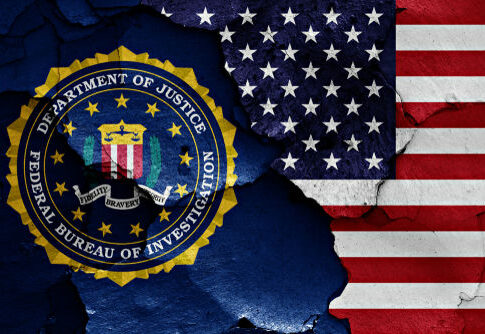After 21 years on the run, FBI’s most wanted domestic terrorist Daniel San Diego was finally captured in Wales, exposing how radical animal rights extremism nearly succeeded in targeting our first responders with deadly secondary bombs.
Two Decades of Justice Denied
Daniel Andreas San Diego’s capture in November 2024 ended one of the longest manhunts in FBI history. The 25-year-old computer specialist vanished in October 2003 while under federal surveillance, abandoning his car in San Francisco. For over twenty years, this domestic terrorist lived freely under the alias “Danny Webb” while his victims and their families waited for justice. His ability to evade capture for so long raises serious questions about our border security and international cooperation in tracking dangerous fugitives.
Calculated Attacks on American Businesses
San Diego’s bombing campaign targeted legitimate American companies simply for conducting legal business activities. On August 28, 2003, he detonated two bombs at Chiron Life Science Center in Emeryville, with the second device deliberately timed to kill first responders. A month later, he planted a nail bomb at Shaklee Corporation in Pleasanton. These weren’t random acts of vandalism—they were sophisticated terrorist attacks designed to murder law enforcement officers and firefighters who risk their lives to protect our communities.
Radical Animal Rights Terrorism
The “Revolutionary Cells — Animal Liberation Brigade” claimed responsibility for San Diego’s attacks, demanding companies sever ties with Huntingdon Life Sciences. This extremist network, connected to Stop Huntingdon Animal Cruelty (SHAC), escalated from harassment campaigns to full-scale terrorism. Their tactics included “stink bombs,” mass email attacks, and ultimately lethal explosive devices. This represents the dangerous progression of radical leftist ideology when unchecked—from protests to property destruction to attempted murder of innocent Americans.
Fighting Extradition While Victims Wait
Even after his capture, San Diego continues to game the system by fighting extradition to the United States. Initially denying his identity despite distinctive tattoos that proved his identity, he now uses legal maneuvers to delay facing American justice. Meanwhile, the employees of Chiron and Shaklee who lived in fear during his reign of terror must continue waiting for closure. This exploitation of international legal processes allows terrorists to further victimize Americans while living comfortably in foreign custody.
San Diego’s case serves as a stark reminder that domestic terrorism often emerges from radical activist movements that view violence as justified for their cause. His sophisticated planning, technical skills, and international support network demonstrate how extremist ideologies can evolve into genuine threats to American lives and liberty. The fact that he remained free for over two decades while law-abiding citizens faced increasing government scrutiny exposes the misplaced priorities of our federal law enforcement agencies during those years.
Sources:
FBI’s Most Wanted Fugitive 2003 California Bombings Arrested Wales
Daniel Andreas San Diego Arrest
Bombs Target Bay Area Biotech Firms

